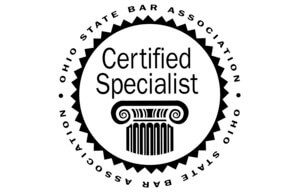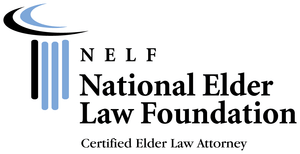Case Studies
These case studies, while based on actual client experiences, are intended for illustration purposes only. They should not be used as a basis for determining a course of action in any other case. The options demonstrated herein should be considered only after consultation with an experienced elder law attorney: the laws are constantly changing and, in addition, a seemingly similar situation may be subject to a drastically different result due to minor factual differences not apparent from these illustrations (in fact, more favorable options may be available due to these variables).
Elder Law
Susan was worried about the cost of her husband's upcoming nursing home care. She had been caring for her husband Thomas as well as she could, but soon he was going to need more care than she could provide to him at home. Susan, being younger than her husband, was worried that the nursing home would eat up all of their savings, and that she would have nothing left on which to live.
Robert and Kathleen had been married for 48 years, and have four children. Robert suffered a stroke and, following a stay in the hospital and some in-patient rehabilitation, was sent home. Kathleen cared for Robert for more than a year, even though her duties stressed her mental and physical health considerably. Robert had successive minor strokes and, eventually, Kathleen was unable to continue to take care of Robert, as she could not lift him on her own, her children all lived out of town, and Robert’s care needs made in home care prohibitive. Fortunately for Kathleen, she was able to admit Robert into a nursing home nearby, because Kathleen never learned to drive.
Edward was admitted to a nursing home in November 1999, suffering from dementia. He was a widower and had three sons. He had $138,600 in savings at this time and a monthly income of $1,800. His nursing home and medical expenses were approximately $6,000 per month. In 1991, Edward had created a Last Will and Testament, a General Durable Power of Attorney for Property Management, a Health Care Power of Attorney and a Living Will. His sons were named as agents on these documents, in the order of oldest to youngest, and the children were named as equal beneficiaries under the Will.
Cheryl was referred to our office by another law firm who had prepared a trust for her mother, Clara. Clara had been admitted to a nursing home the previous month, and Cheryl was concerned about Clara’s finances, and about some gifts that had been made in the last couple years.
Betty was unable to continue to live alone due to progressive dementia. Her daughter Carole did not want Betty to live in a nursing home, rather, she wanted to try to care for Betty in her home, but was not sure if they could afford it.
After his father passed away, James visited the bank where his father had an account under both his and James’ name and closed the account, transferring the money to his own account. The account had approximately $85,000 in at when it was closed. Several months later, James received a letter from the Attorney General’s Office requesting information regarding accounts in his father’s name at the time of his death. James contacted the number on the letter and explained that his father had an account but that the money was now his. He was told that the money had to be given to the State of Ohio or that the county prosecutor would become involved. James then contacted our office.
Veteran Benefits
Tom was referred to a financial advisor by a social worker at the nursing facility where his Father, Joseph, was receiving rehabilitation after a fall. The advisor met with Tom and discussed a pension benefit his Father might be able to receive through the Department of Veteran Affairs.
Mary and Ed had been married for 63 years. Ed and Mary had an adult disabled child Jennifer. Mary was receiving nursing home care, at a cost of $6,500 per month. Ed was residing in an assisted living facility, at a cost of $3,500 per month. Their goals were to provide for their own long-term care, while preserving the house for Jennifer. However, they were worried that their assets would be exhausted quickly.
Estate Planning
Madeline has two children, is healthy, and wishes to plan for her estate. She is concerned, however, that she has to disinherit her one son, William, who was born with a disability. She has always cared for William in the family home, and will continue to do so as long as she is able, but recognizes she may not always be there for him.
William owned four rental properties in addition to his home. While he owned an umbrella insurance policy for liability protection on the rentals, he was concerned that a tenant or guest would sue him if they had an accident in one of his rentals and that he might lose all his rentals, his home and/or his life savings because of a claim that was not covered by the insurance or exceeded the amount of the insurance.
Fred and Wilma have been married for 45 years and have three children. Sadly their children weren’t so lucky. Wally has never been married and has no children. Ralph has been married three times and has five children. His current spouse has three of her own children as well. Sally’s marriage is rocky and a divorce very well might be in the future. Fred and Wilma are concerned that if something happens to both of them their estate would pass to their childrens' spouses and step-children along with their children and grandchildren. They wish for all of the assets to stay within the family and not pass to spouses and/or grandchildren.
Brad and Jen were married for seven years. During this time they had two children and Brad incurred substantial debts. After a long and contentious divorce proceeding, Jen was awarded custody of the two children, and in the few years since the divorce she has managed to save up a small amount of assets. If she passes away, she wishes to have these assets available to her children for college expenses and, if possible, as a small inheritance. She is concerned that if she dies and the children are still minors, Brad will inherit her money. Even if she were to name the children as beneficiaries on her accounts and assets, or disinherit Brad under a will, Brad would still likely be given control of the money she leaves to the minor children, and he may squander the assets.
Occasionally you will hear or read that a revocable living trust is the only way to avoid probate. While it is true that a properly funded revocable living trust can avoid probate, and is an important estate planning tool, there are other options to consider. One popular option is joint and survivorship accounts and deeds.
It is very important to have a Health Care Power of Attorney, Living Will, HIPAA Waiver and Durable Power of Attorney for Property Management in place before any major health crisis arises.
- aid and attendance
- annuity
- asset protection
- assets
- bloodline trust
- child caregiver
- children
- disability
- divorce
- estate
- estate recovery
- exempt trust
- gifting
- ira
- joint and survivorship account
- living will
- medicaid
- nursing home
- personal services contract
- power of attorney
- precatory trust
- probate
- revocable trust
- special allocation of resources
- special needs trust
- spend down
- taxes
- trust
- trust fund
- VA benefits
- veteran






